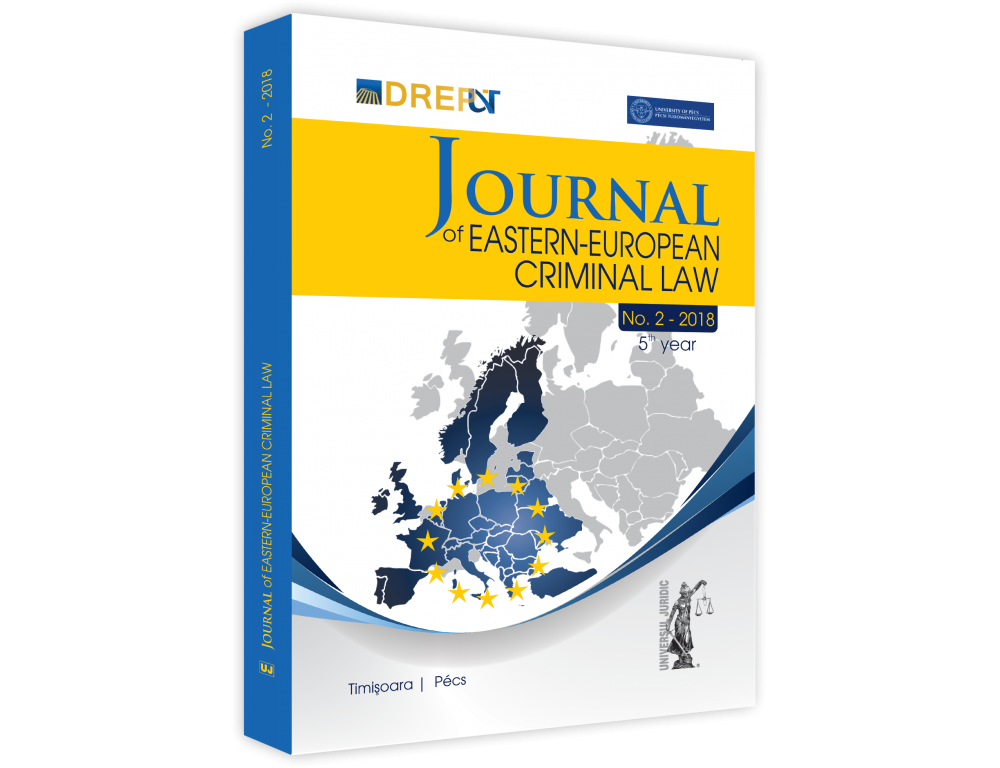Journal of Eastern European Criminal Law
Journal of Eastern European Criminal Law
Publishing House: Universul Juridic
Subject(s): History of Law, Criminal Law, International Law, Human Rights and Humanitarian Law, Law on Economics, Philosophy of Law, EU-Legislation, Sociology of Law
Frequency: 1 issues
Print ISSN: 2360-4964
Status: Active
- 2014
- 2015
- 2016
- 2017
- 2018
- 2019
- 2020
- 2021
- 2022
- 2023
- 2024
- Issue No. 01
- Issue No. 01
- Issue No. 02
- Issue No. 01
- Issue No. 02
- Issue No. 01
- Issue No. 02
- Issue No. 01
- Issue No. 02
- Issue No. 01
- Issue No. 02
- Issue No. 01
- Issue No. 02
- Issue No. 01
- Issue No. 02
- Issue No. 01
- Issue No. 02
- Issue No. 01
- Issue No. 02
- Issue No. 01
- Issue No. 02
Articles list
{{ article.TitleOriginalLanguage }}
{{ article.TitleOriginalLanguage }}
({{ article.TitleEnglish }})
- Publication: {{ article.Publisher }} ({{ article.Issue }})
- Author(s): {{ article.Authors }}
- Contributor(s): {{ article.Contributors }}
- Language: {{ article.Language }}
- Subject(s): {{ article.Subjects }}
- Issue: {{ article.Issue }}
- Page Range: {{ article.PageRange }}
- No. of Pages: {{ article.NumberOfPages }}
- Keywords: {{ article.Keywords }}
- Summary/Abstract: {{ article.SummaryAbstract }}
- Price: {{ common.currency(article.Price) }}
Short Description
Journal of Eastern-European Criminal Law is an ambitious project which aims to bring together Eastern European scholars and practitioners acting in the field of Criminal Law and Criminal Procedure Law. The journal stands as an unique publication, at least in this part of the world, as an outcome of the partnership between specialists in criminal law and criminal procedure law from the law faculties of the West University in Timisoara and the University in Pecs, with the participation of specialists from law faculties of the Republic of Serbia, who aimed at presenting, in a different language from their own, the serious amendments of criminal legislation that occurred in their countries in the post‐communist era, an essential requirement for the rule of law.
We envisage this journal, published semesterly, to be open to all researchers in the academic environment from the former communist countries, but not limited to them, to professors, PhD students, but also to magistrates and other professionals interested in the evolution of criminal legislation and in the more and more firm response to be given to the criminal phenomenon, while observing the fundamental human rights.

